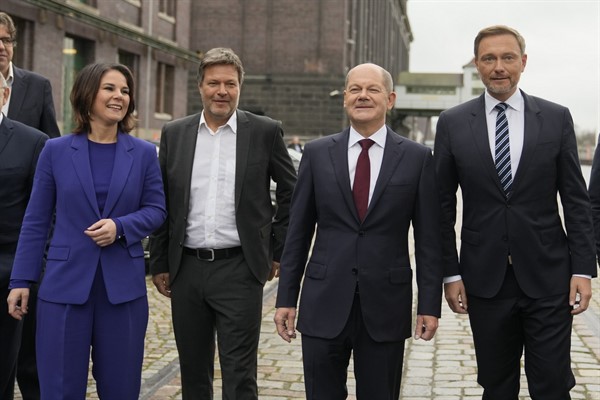On Dec. 8, former Chancellor Angela Merkel officially passed the baton to her successor, Olaf Scholz, after 16 years as Germany’s leader. Scholz now heads the three-party coalition between his center-left Social Democrats, or SDP, the pro-environment Greens, and the pro-market Free Democrats, or FDP. Known as the Ampelkoalition—or “traffic light coalition,” in reference to each party’s official colors, which correspond to the color sequence of a traffic light—this heterodox configuration’s “Dare More Progress” coalition agreement offers a roadmap to confront the challenges facing the German people. Domestic issues such as digitalization, the phasing out of coal and increasing the minimum wage were front and center in the pact.
It is, however, the coalition accord’s vision of Germany’s role in the world that, while seeking continuity with the Merkel era, could provide the opportunity for a potential reorientation. The central question arising from the pact is, Will Europe’s most populous and prosperous country finally assume a greater leadership role in the world?
While it is too early to know the answer in full, there are early indicators of Germany’s post-Merkel international direction.

